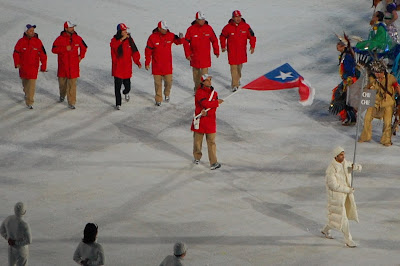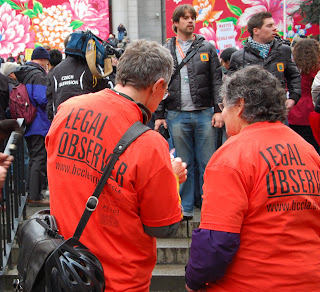 UPDATED
UPDATEDThe 8.8 earthquake off Chile (by way of comparison, the 7.0 Haiti earthquake was five hundred times weaker) has caused tsunami warnings to be issued for countries on the other side of the Pacific. According to Pacific Tsunami Warning Center,
A TSUNAMI WARNING IS IN EFFECT FOR CHILE / PERU / ECUADOR / COLOMBIA / ANTARCTICA / PANAMA / COSTA RICA / NICARAGUA / PITCAIRN / HONDURAS / EL SALVADOR / GUATEMALA / FR. POLYNESIA / MEXICO / COOK ISLANDS / KIRIBATI / KERMADEC IS / NIUE / NEW ZEALAND / TONGA / AMERICAN SAMOA / SAMOA / JARVIS IS. / WALLIS-FUTUNA / TOKELAU / FIJI / AUSTRALIA / HAWAII / PALMYRA IS. / TUVALU / VANUATU / HOWLAND-BAKER / NEW CALEDONIA / JOHNSTON IS. / SOLOMON IS. / NAURU / MARSHALL IS. / MIDWAY IS. / KOSRAE / PAPUA NEW GUINEA / POHNPEI / WAKE IS. / CHUUK / RUSSIA / MARCUS IS. / INDONESIA / N. MARIANAS / GUAM / YAP / BELAU / JAPAN / PHILIPPINES / CHINESE TAIPEIThe PTWC warning for Hawaii is at the highest warning severity level. In 1960 a 9.5 magnitude quake -- the largest earthquake of the century -- off South Central Chile caused a tsunami that killed over sixty in Hawaii before it taking more than 100 lives in Japan.
Whether any tsunami will have a serious impact as far north as California, Oregon, Washington, British Columbia, and Alaska, will depend largely upon the ocean currents, according to a tsunami expert interviewed on CNN.
CNN's weatherman mentioned a report of a 45 meter-high-wave hitting Easter Island, but this astounding claim had not been validated. The 1960 Chilean earthquake reportedly caused a 25 meter-high tsunami.
You can watch a live streaming video from Chile here.
Update 1: The West Coast and Alaska Tsunami Warning Center has issued a "tsunami advisory" only for California and Alaska (map). Vancouver, where the Olympics is finishing up, will apparently not be impacted. WCATWC has also posted a preliminary forecast model energy map:
Update 2: And here are the tsunami travel times (WCATWC):
























